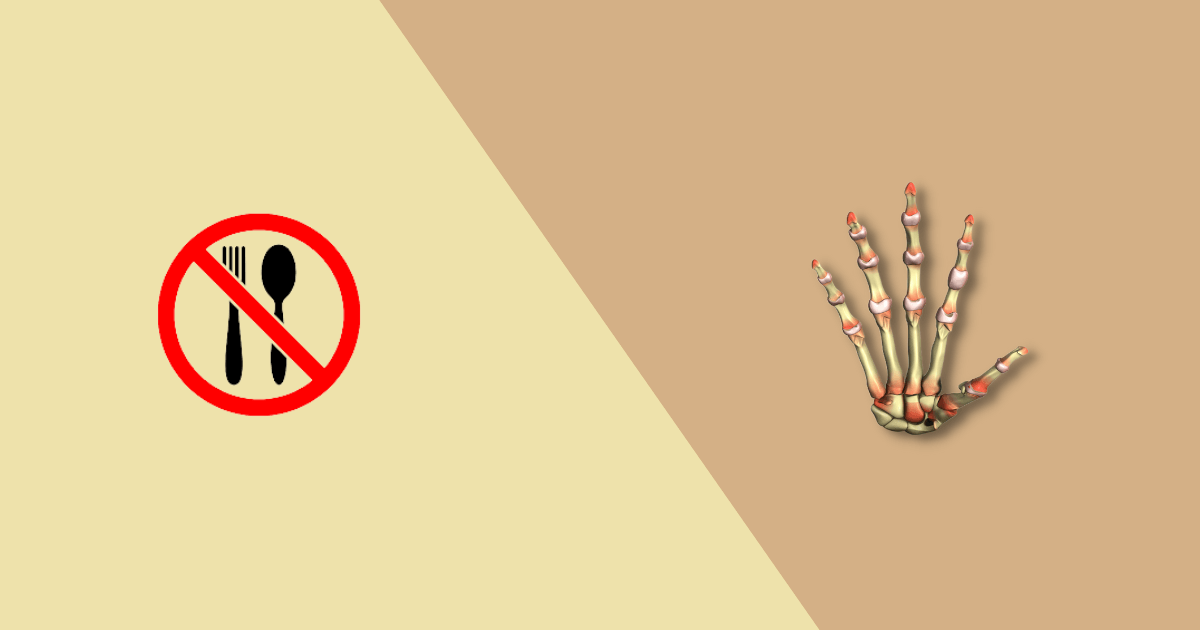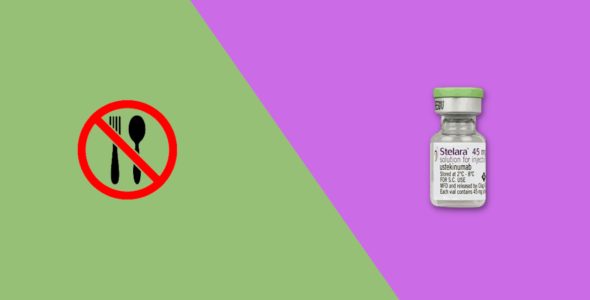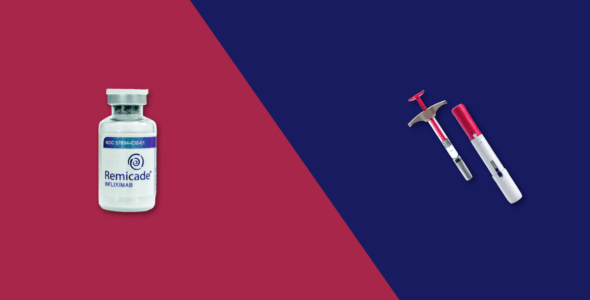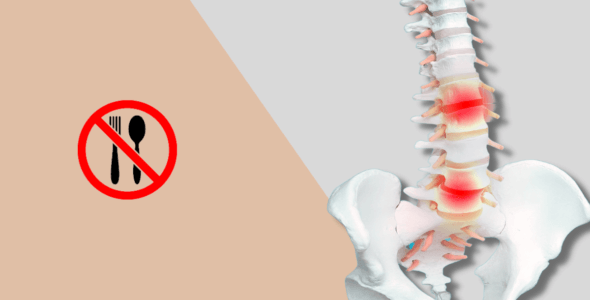Foods to avoid with arthritis
Arthritis is the chronic inflammation of joints in your body. Symptoms include joint pain and bone damage. Osteoarthritis is the most common form. Psoriatic arthritis, rheumatoid arthritis, and gout are also inflammatory autoimmune diseases.
Due to the increased risk of other health conditions, people with osteoarthritis will benefit from following a healthy diet as it will help with weight loss. Here, we will take a look at the foods you should avoid and answer some commonly asked questions about arthritis.
12 foods to avoid with arthritis
- Foods high in salt – processed meat, cheeses, canned soup. High levels of sodium in diets have been linked to an increased risk of rheumatoid arthritis
- Foods high in sugar – soda, fructose-sweetened drinks, candy, cakes, ice cream, sweets
- Red meat has been found to worsen the symptoms of rheumatoid arthritis and increases the risk of inflammatory arthritis
- Processed foods such as fast food, fried food, and breakfast cereals are high in sugar, preservatives, and other inflammatory ingredients which can make your symptoms of arthritis worse. Diets high in processed food will also increase your risk of other health conditions such as obesity and heart disease, affecting your overall health
- Foods containing gluten such as wheat, rye, and barley. A gluten-free diet may help to reduce symptoms of arthritis. Also, people with celiac disease are more likely to develop rheumatoid arthritis and vice versa. It has also been found that those with a gluten-free vegan diet reduced their symptoms of rheumatoid arthritis and inflammation
- Alcohol consumption should be restricted or avoided completely as it can make symptoms of arthritis worse. Alcohol has been seen to worsen arthritis affecting the spinal cord, and increase the severity and number of gout attacks. Excessive alcohol consumption is also linked to an increase in the risk of osteoarthritis
- Foods high in advanced glycation end products (AGEs). AGEs are produced from foods containing sugars, proteins, and fats. Those with inflammatory arthritis have high amounts of AGEs compared to people without arthritis, and the build-up of AGEs in bones and joints may cause inflammation and oxidative stress. Foods high in protein and fat that are fried, grilled, roasted, broiled, or seared contain the highest levels of AGEs. This includes food such as bacon, roast or fried chicken, and pan-fried or grilled steak. Margarine, mayonnaise, and french fries are also high in AGEs. AGEs tend to build up in tissues in the body, especially as we get older, and are also associated with diseases such as diabetes and rheumatoid arthritis. Reducing levels of AGE may help to reduce inflammation. Whole foods such as vegetables, fish, fruits, and legumes may help to reduce AGE levels in your body
- Diets containing high levels of omega-6 fatty acids but low in omega-3 fats may increase inflammation in the body making the symptoms of rheumatoid arthritis and osteoarthritis worse. Reducing the consumption of corn, safflower, and vegetable oils high in omega-6 fats, and increasing fatty fish high in omega-3-rich may help to improve symptoms
- Foods containing saturated fat such as butter, and cheese can also increase inflammation in the body and should be limited to 10% of your dietary intake
- Trans fats should also be limited, because it reduces good cholesterol, and increases bad cholesterol, raising the level of inflammation
- Nightshades are vegetables that contain a compound known as solanine. Removing these vegetables from your diet may help to improve your symptoms. These vegetables include tomatoes, chili peppers, potatoes, and eggplant
- Foods high in purines – purine is converted to uric acid in the body. High levels of uric acid in the blood can cause a type of arthritis known as gout. Food high in purines include red meat, alcohol, cured meat such as bacon and ham, and certain seafood, such as scallops and mussels. A low-purine diet with medication may be recommended by a doctor to help prevent the symptoms of gout.
Can diet help arthritis?
What you eat will affect the levels of inflammation in your body. Some foods may cause inflammation while other foods are anti-inflammatory. Anti-inflammatory foods have been shown to reduce the levels of arthritis pain and its progress. Your body weight will also affect your levels of inflammation. Fat cells naturally produce cytokines, which also increase inflammation. By using your diet you can maintain a healthy weight, which will help reduce inflammation and pressure on bones and joints in your body.
Fruits and vegetables
The Arthritis Foundation recommends certain fruits and vegetables that may be of benefit to those with arthritis:
- Onions, garlic, and leeks – contain an anti-inflammatory compound called quercetin as well as sulfur compounds that reduce cartilage damage
- Green leafy vegetables – cabbage, broccoli, and spinach containing calcium and antioxidants
- Orange and red vegetables such as sweet potatoes, squash, and carrots containing carotenoids
- Citrus fruits, kiwi fruit, and strawberries – foods high in vitamin C helping to protect bone and cartilage
Anti-inflammatory diet
An anti-inflammatory diet can help you avoid symptoms of inflammation. An example of this is the Mediterranean diet. This diet contains foods such as olive oil, whole grains, fruits, and vegetables, lean meats, eggs, fish, nuts, and seeds. This diet also contains moderate amounts of dairy products but with limited amounts of alcohol, red meat, and sugar.
The Mediterranean diet can help to reduce inflammation and pain in those with osteoarthritis and help to protect against the risk of bone fracture. This diet may also help people lose weight as this diet is mostly plant-based. A 2018 study found men who followed this diet had a reduced risk of developing rheumatoid arthritis.
What foods help arthritis pain go away?
Certain foods will make arthritis pain and inflammation worse, while other foods may actually decrease inflammation and help reduce arthritis pain. Foods that may help reduce arthritis pain include:
- Fatty fish, salmon, sardines, mackerel, and tuna containing omega-3 fatty acids and vitamin D
- Dark leafy greens such as spinach, broccoli, kale, and collard greens
- Olive oil
- Nuts
- Berries
- Garlic and onions
- Green tea
Are bananas good for arthritis?
Bananas are high in potassium and magnesium and can increase bone density. Magnesium may also help to relieve your arthritis symptoms. Bananas have an antioxidant, anti-inflammatory, and antimicrobial activity that helps to reduce inflammation and improve your body’s immune system.
Are eggs good for arthritis?
Eggs contain substances with anti-inflammatory activity. 2 eggs each week is recommended as part of a healthy balanced diet for most adults with arthritis.
What fruit is not good for arthritis?
Citrus fruits are considered by some to cause inflammation due to their acidity and are advised to avoid them.
What foods are bad for arthritis?
Foods known to increase inflammation and aggravate arthritis symptoms include fatty foods, sweets, foods high in carbohydrates, alcohol, advanced glycation end products (AGEs), foods containing gluten, and foods high in additives.
Are tomatoes bad for arthritis?
While there aren’t any studies to support a link between arthritis pain and most nightshades, tomatoes may be an exception. Tomatoes raise levels of uric acid and trigger gout, a type of arthritis that affects the joints in the toes, fingers, wrists, elbows, and knees.
What medication can I take for arthritis?
Medications for arthritis include Humira, Enbrel, Orencia, Rituxan, and Remicade. Speak to your healthcare provider for medical advice about treatments available.
Medically reviewed
A medical professional has reviewed this article.


Jamie Winn, PharmD
Jamie Winn, PharmD
Dr. Jamie Winn received his Doctor of Pharmacy in 2002 from the University of South Carolina College of Pharmacy, Columbia, SC. Jamie is a medical reviewer for NiceRx.







